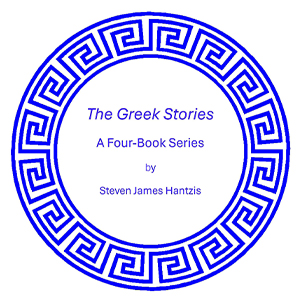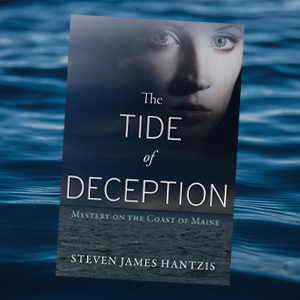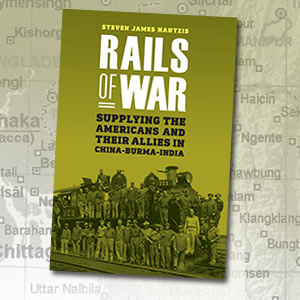I have, at times, introduced myself as a recovering motorhead. I’m still working on it. About ten years ago I gifted my British racing green Triumph Spitfire to my daughter and sold our lumbering Jaguar V-12 convertible. Then, I bought a real car, a 2003 Mercedes SL500. A lovely car, the best I’ve ever owned. For those uninitiated in the dense nomenclature of Mercedes Benz, SL stands for Sportlich-Leicht. It was a grand-touring roadster.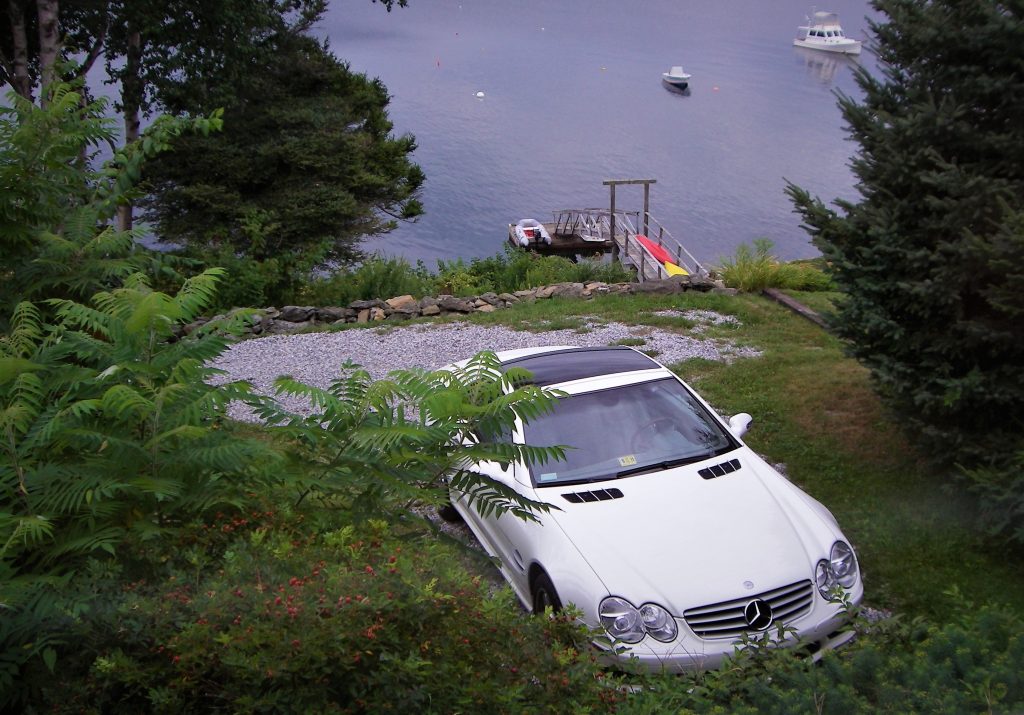
The SL was unalloyed white, Germany’s international racing color. It featured a sumptuous gray-ash leather interior, burl wood accents, and a burl steering wheel. It was rolling art by any other name. At the touch of a button, its glass hardtop tucked into the trunk like a scene from a Transformers movie. With the top in the boot, the car was nearly windless thanks to Teutonic aerodynamic wizardry. With its sophisticated ultra-high pressure magnetic fluid suspension and its massive Michelins mated to a five-liter V-8, it handled like it was on rails.
I bought the SL used with thirty thousand miles. I pampered it for eight years and drove it from Key West to Calais, Maine. It never faltered and never failed to put a smile on my face and never failed to go fast when I wanted to. Last summer I drove it to Maine and decided it was more useful in the Pine Tree State than in Alexandria. I never liked driving in the DC area where people are rude, open car doors with abandon, smash into parked vehicles, and generally have little or no regard for nice things. And, if DC drivers don’t get you, the potholes will. In Maine, it would lead a lazy life of top-down, blue highway cruising where I would soak in the natural beauty, and coastal vibe and the only depreciating challenge would be sand in the floor mats.
And, that’s what happened – until I put it away for the winter.
In mid-November, I washed the SL, treated the leather interior, connected a battery tender, and left Maine with the knowledge that our modern two-car garage would provide shelter and a bit of warmth during the coming cold and dark. But, when we returned to Maine the week following Christmas, things got weird.
Mus musculus Linnaeus, 1758.
It was cold in Maine the week we returned. For eleven days high temperatures never rose into double-digits, and the lows were below zero. So, yes, I understand why any living creature would appreciate the relative warmth and shelter of our garage. I can appreciate this, but I never agreed to it. Not that anyone asked.
My first clue that there was a problem came when I started the SL to make sure it was okay. It wasn’t. That’s when I got the stomach-punching “Visit Workshop” message displayed in the instrument cluster. Then, the SL would not turn off. The engine kept running with the key out of the ignition. When I popped the hood to block the air intakes to kill the engine, I saw a dead mouse in the engine bay.
Along with the “Visit Workshop” message the SL told me to “Raise Roll-Over Bar.” This message, I had never seen before nor could I find anything related to it on the Mercedes owner’s group sites.
So, in early January, I tucked away this problem for a warmer time and set some old-fashioned spring traps in the garage. I was in Maine roughly four weeks between January and April and caught twenty-four invaders. In April, I mustered the courage to start troubleshooting the SL, and my first line of investigation was the fuse box-relay area behind the passenger’s seat. I popped the plastic cover under the leather interior panel, and there it was an abandoned utopian mouse commune. Abandoned because I had presumably trapped all the whisker-twitching cultists. They had used the sound insulation that Mercedes had thoughtfully padded the noisy bits with to build a bunker precisely over the fuse box, critical relays, sensors, and circuits. Then, they peed on everything and chewed the hair-width wiring that communicates the driver’s wishes and demands and conducts the neural network of SL’s deep state automotive consciousness.
I sucked everything as clean as I could with my Shop-Vac, got a magnifying glass and inspected the havoc. And, yes, it was chewed on, and peed on, and generally as smelly as you might imagine but please try not to. This filthy blight in mind-numbing proximity to pristine gray-ash leather and burl drove me to the brink. I was in motorhead shock. My cherished object of attachment the bonds to which I had forged with meticulous stewardship and my pride in its very existence within the orbit of My Things had transmuted to anxiety, maybe even panic. The onset of a separation complex hit me like a homesick freshman. It was a week before I regained nominal emotional equilibrium and the problem solver kicked in. I called Dan’s Auto.
Dan’s a square shooter and Joe, the tech who tried to mend the SL, is a stand-up guy and a patient caregiver. But, they had no luck. That’s when I called Prime Motors in Scarborough, Maine, the nearest Mercedes dealer. There would be access to the latest proprietary Mercedes diagnostic equipment and trained techs familiar with the SL’s cognitive elements, relay modules, and nervous system.
I took it to Prime, and the next day the service writer called and suggested I contact my insurance provider. I did and, yep, it was a total loss. The investigating tech estimated that over 100 of the tiny little wires would have to be repaired, and modules galore would need replacing. The service writer said the retractable hardtop module alone would cost $3,100. Thus came to an end an eight-year relationship with the best car I had ever owned. I kid not when I say I would have kept it for another twenty years or willed it to my daughter.
So, what’s the revenge? How does one go about killing every mouse and their relatives in the State of Maine?
My first line of inquiry was cats. Your every day, unrepentant American shorthair tabby is a prodigious mouse killing machine batting one-in-three, that’s a .333 OMP (On Mouse Percentage). They are nature’s Hall of Famers all. A quick online search found a feral cat support group in Portland that sells fixed and neutered “barn cats,” preferably in packs of three or more. But, I don’t have a barn. So, I tried to enlist our next-door neighbors because they have an unattached garage that might qualify as a barn, and they too, had suffered terribly this past winter when their lovely home was attacked by a vile coalition of mice, woodpeckers, and chipmunks. And, by the way, everyone says that this past winter saw an epic reign of mouse predation. Some blame it on the bumper seed crop from last year’s good growing season. Anyway, after thoughtful discussion and applied game-theory analysis over bottomless cocktails, it was decided that introducing feral cats onto Barters Island might be socially disruptive. It seems that not everybody likes feral cats. And, since our neighborhood cat, Tilly, is too well fed to bother with scruffy mice, cats as a revenge strategy were out. No, my revenge will come in a more personal and engineered form. Vengeance made of my own hands.
Before enlisting Google, I heard from three Mainers about, what I’ve deemed, the Maine Mouse Bucket. Now, before I go further, this device can be used to live-trap the vermin for kindly redistribution to someone else’s yard but I’m Greek, and it’s payback time.
If you Google “Maine Mouse Bucket” as I did, you’ll see a cheap and reportedly efficient method of trapping and dispatching mice in an abyss of deadly hubris. As I dove deeper into my research, I found that the whole world has arrived at similar inexpensive anti-mouse-rat innovations. All involve a bucket and a seemingly obvious but secretly perilous route to bait nirvana. So, assuming that Russian bots have no interest in manipulating this corner of the internet, I’m convinced that the Maine Mouse Bucket will do the trick and free my soul of its honor-bound debt. I’m on my way to Grover’s Hardware now, and I’m building at least three. Overkill? Impossible. – SJH
In the Weeds in Palmer
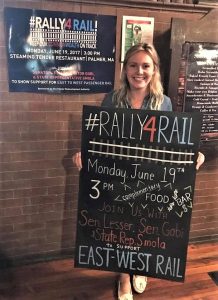
Scarlet
What makes a railroad town? There was a time when seven railroads chugged through Palmer, Massachusetts. Now there are four railroads, and the one passenger number, Amtrak’s Lake Shore Limited, doesn’t stop. But, railroading is not dead in Palmer, quite the opposite. Palmer is a town of working railroaders, motivated historians, and rail buffs, with civic aspirations for again becoming a stop on Amtrak’s timetable.
Palmer provided a generational double-whammy. The demographic profile was predictable at my well-attended Amherst Railway Society presentation. Railroad enthusiasts are often male and often of a certain age. I treasure them all. I also met a young woman, a recent Western New England University graduate, who is all about returning rail service to Palmer and is knee-deep in the politics of getting it done. She is a spark in the ether, if you will, or perhaps a glowing ember in the sooty plume of a relic locomotive.
Scarlet Lamothe will tell you that rail transport is the future; it’s efficient, environmentally sound, and a safe way to travel. She’ll contend that better rail service means fewer Massachusetts drivers, and all Americans can get behind that. She’ll tell you that her great commonwealth was a leader in founding this country and it now needs to lead in infrastructure innovation. Yes, Scarlet is irrefutably correct on every point. And lastly, she’ll note Palmer’s ideal location, already primed architecturally accredited station, secure parking, and excellent restaurant, the Steaming Tender. And, again, she’s right on every point. Scarlet is articulate, bright, and engaging. So, who could resist?

Massachusetts State Senators Anne Gobi, Eric Lesser, & State Rep. Todd Smola – Palmer Rail Supporters
Well, you guessed it, the political class and the bureaucratic apparatus it controls but often hides behind. There lies resistance. But, Scarlet’s going to win. And, Palmer’s going to win. Put money on it. It’s a matter of will finding a way.
My guilty pleasure in Palmer was speaking to eighty or more rail enthusiasts on a dreary Wednesday night and not only telling the story of the 721st Railway Operating Battalion but getting into the weedy details of railroading without losing the audience. Most people don’t care about the advantages of a Westinghouse air brake system over a vacuum brake system or the operational hazards of link-and-pin coupling versus the efficient and much less dangerous drawbar-knuckle system. I do, and I like talking about these things. Rambling on about railroad minutiae is typically a selfish pleasure, but not in Palmer. The Palmerians were ready for details.
The well-organized Amherst Railway Society fielded an outstanding audience on a slushy post-Nor’easter weekday evening. Kudos to John Sacerdote, President and Show Director. So, here’s something to put on your calendar. Next January 25-26, 2019, the Amherst Railway Society Railroad Hobby Show, the largest show of its kind on the East Coast, will kick off in West Springfield, Massachusetts. I’ll be there, and I look forward to riding Amtrak to Palmer, having a drink at the Steaming Tender, then traveling on to Springfield. There, I plan to get into the weeds with anyone looking for scintillating railroading details. All aboard! – SJH
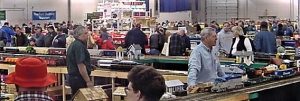
Amherst Railway Society Railroad Hobby Show
First Impressions

We bought our house on Barters Island in Boothbay, Maine in August 2016. We closed on the 12th and the 17th, the third Wednesday of the month, as regular as the tide, the Barters Island Community Association held its monthly Potluck. We were newbies, but we decided to go and introduce ourselves.
Barters Island is a small island in the Sheepscot River connected to the Boothbay Region by the Trevett Bridge, one of the last human-powered swing bridges on the planet. When a boat hails for passage on VHF radio channel 9 or 13, a bridge tender comes out of her shack, lowers the traffic barriers, and then proceeds to the center of the bridge with a six-foot-long lever. She attaches the bar to a spindle in the center of the bridge and rotates the gearing twenty-four times. Once she gets everything in motion, if the wind is blowing right, she can push the lever and stand in one position without needing to walk behind it. The bridge dutifully turns ninety degrees, the boat passes, and then the tender engages the 96:1 gearing in the opposite rotation and the bridge closes. The traffic barriers are opened, often with the help of local motorists, and all returns to normal so the 318 residents of Barters Island are free to come and go as they please.
Barters Island is an old place. According to the Boothbay Region Historical Society, Mr. Samuel Barter, a housewright born in 1711, left Arundel, Massachusetts and settled on Barters Island about 1737. Back then, Maine was a colony of Massachusetts who was a colony of Great Britain. By the way, the correct local pronunciation of Barters is Batters.
Kathy and I arrived at the Barters Island Community Center, filled out our name tags, and began introducing ourselves to the friendly and welcoming forty-or-so-residents in attendance. A Barters Island Potluck involves drinks and appetizers, the main course buffet, and a dessert table. Nothing fancy and nothing overly-programmed. No one puts on airs.
Between the main course and the dessert, the Community Association president, Evelyn, made her report. The Association had helped a couple of Barters Island families who had fallen on hard 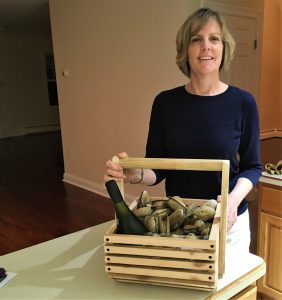 times. Evelyn reviewed the fall calendar and entertained other announcements. Then, Evelyn kicked-off a raffle. The item to be won was a hod of dug-that-morning quahog clams and a bottle of oak-aged Chardonnay. A hod, by the way, is a half bushel basket, a clammer’s tool, constructed of wooden lathes and sometimes called a roller.
times. Evelyn reviewed the fall calendar and entertained other announcements. Then, Evelyn kicked-off a raffle. The item to be won was a hod of dug-that-morning quahog clams and a bottle of oak-aged Chardonnay. A hod, by the way, is a half bushel basket, a clammer’s tool, constructed of wooden lathes and sometimes called a roller.
The locals had sussed out that my attractive, outgoing, and personable wife was a Certified Public Accountant. So, after the fundraisers worked the hall and after I played along buying $20 worth of tickets, it was time for the awaited drawing. Evelyn’s hand was almost in the Tupperware ticket trove when she announced, “Wait, we’ve got a CPA here. Let’s let her draw.” So, Evelyn held the plastic bowl above Kathy’s head, and Kathy reached up and in, and the first ticket out was, of course, mine. That’s the way to make a first impression. I might have re-donated the quahogs, but they looked delicious that warm August evening piled against the chilled, sweating bottle of wine. So we kept them and steamed them for lunch the next day. I still have some in the freezer waiting for chowder. I’ll invite our neighbors when I get around to making it.
By the way, if you want to see the human-powered Trevett Bridge in action, you better do it this summer. According to the Maine Department of Transportation (MDOT), the 86-year-old pony truss structure is clanking and not in a good way. MDOT says it’s time to go, time for an electric motor and a computer interface and so long to Terry, the smiling tender. I wonder if 8.1 million dollars’ worth of technological advancement will make as good a first impression as Terry circling with her lever. – SJH
Key to Success
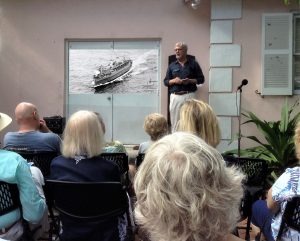 Key West is good weather and good food. It’s also good people. Kathy and I have been fortunate to visit her aunt and uncle here on many occasions. Coming here in February is a treat not just for the tropical heat and humidity, scurrying iguanas, free-range chickens, and randy roosters, it’s also Kathy’s last chance to live a little before the CPA prison known as tax season. And, this visit had a bonus.
Key West is good weather and good food. It’s also good people. Kathy and I have been fortunate to visit her aunt and uncle here on many occasions. Coming here in February is a treat not just for the tropical heat and humidity, scurrying iguanas, free-range chickens, and randy roosters, it’s also Kathy’s last chance to live a little before the CPA prison known as tax season. And, this visit had a bonus.
Michael Nelson at the Key West Monroe County Library organized and promoted a Rails of War presentation. Thanks, Michael. We set up outdoors on the library’s patio, and it was well attended and well-received. Key West in the winter draws a fair number of retired military folks, so we had quality interaction. And, here’s a special thanks to Robin at Books & Books who handled the retail. Books & Books is an excellent business and worth a visit if you’re in The Conch Republic.
Aunt Kathy and Vince went all out. After the presentation, they hosted an after-reception. Great party. Since the crowd was smaller than at the library, we had a chance for more in-depth dialogue and I had many “productive” conversations. Here’s to Steve for helping me with a “what to write next” challenge. Here’s to Lee for intro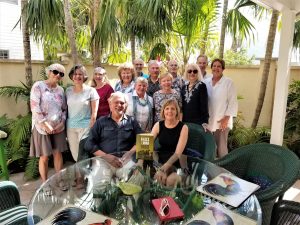 ducing me to the U.S. Coast Guard cutter, Ingham. The ship served for fifty-two years, from 1936 to 1988, and received two Presidential Unit Citations for extraordinary heroism in action against an armed enemy. The vessel is now retired and welcoming visitors in Key West. From its deck is probably the best place to watch the much-anticipated sunset. And, here’s to Dodie for offering to share her father’s war artifacts. He was one of the brave men who flew the hump in CBI.
ducing me to the U.S. Coast Guard cutter, Ingham. The ship served for fifty-two years, from 1936 to 1988, and received two Presidential Unit Citations for extraordinary heroism in action against an armed enemy. The vessel is now retired and welcoming visitors in Key West. From its deck is probably the best place to watch the much-anticipated sunset. And, here’s to Dodie for offering to share her father’s war artifacts. He was one of the brave men who flew the hump in CBI.
Finally, here’s to all the fun-seeking tourists on rented motor scooters and the laid-back locals. Enjoy the sun and fun, and we hope to see you on our next solar circuit. The library invited me back next year. – SJH

Big Four Yards
A rail yard is a place where work gets done. It’s a place where big, heavy, dangerous objects roll around sometimes without attachment and often without expectation. Big things happen in a rail yard, and you have to be alert. So, on any given day operating craft employees do their best to stay sharp and ready for surprises like an un-chocked cut of cars rolling out of the yards onto the mainline or any of a million other odd occurrences.
Yards come in different sizes. In Conrail’s old western division, the Big Four Yards in Avon, Indiana, just west of Indianapolis, was the largest in the division and one of the largest in the nation. The Big Four Yards was a “production” facility. Its purpose was to receive, classify, reassemble, and dispatch trains. Other yards were smaller affairs and were used to organize cuts of cars associated with one factory, grain mill, coal mine, print plant, or distillery. One of those smaller yards was the Westside Yard on Morris Street in Indianapolis primarily used to service the Ford foundry and other nearby industries. It was a small, unautomated yard, with maybe ten classification tracks, and usually had no more than two crews working on the first trick.
Every rail yard, no matter the size, has a crew breakroom. These are minimally furnished areas where operating craft employees eat their lunches, wait to be dispatched, or hang out between work assignments. In my day, a breakroom would be full of men because all operating craft employees were male. In the breakroom, you’d find men dozing, reading, eating, but always the center of breakroom culture was the quarter-ante Euchre game. If you’re unfamiliar with this speedy four-person bout of chance and skill, here’s some trivia. According to the people at Bicycle Playing Cards, Euchre is the reason why modern card decks were first packaged with jokers. But, even Euchre outgrew jokers.
The Euchre game tends to engender a great deal of chiding. Most of this is good-natured, some perfunctory based on the cards dealt, and some, let’s be generous, is raw and blue. And believe me, some brakemen-conductors are show-quality when working blue. Much of what they spout is hilarious. And, they are appreciated because they tend to keep their audience, in this case, the entire breakroom, laughing, alert and awake.
One such boisterous Euchre game was underway on a sunny summer day at the Westside Yard when I arrived with my seven-year-old daughter, Sara. I had a day off, and I wanted to take Sara on an up-close tour of railroad equipment. But first, I needed to check in at the breakroom to see what was happening.
The Westside Yard breakroom was a flimsy wooden shack just off the main switching lead and behind the yardmaster’s office. As we approached the screen door entrance, I could hear the banter and was a bit worried about exposing my precious, innocent daughter to not-so-innocent on-the-job railroaders.
We walked in, and everything got quiet as the crews shifted behavioral gears from unleashed male primates to civilized fellow fathers and upstanding citizens. Everybody smiled, I introduced Sara, and everybody politely said hello. Then, as I took Sara’s hand and started to leave, brakeman Steve Patterson, a comic pro who had missed his true calling in the performing arts, said: “Hey, Sara, have you heard this joke?”
I cringed. I was worried, but I shouldn’t have been. Steve was a pro. He had a family routine as well as his standard blue work. And, here’s the joke.
A frog walked into a bank and asked for a loan. The loan officer said, “Do you have any collateral?”
The frog answered, “All I have is this knickknack.”
The loan officer asked, “Do you have anything else?”
The frog answered, “Yes, I have a lily pad.”
And, at that, the loan officer shouted to his secretary, “Excellent. Knickknack, paddy-whack, give the frog a loan!”
I shouldn’t have worried. –SJH
If you want to know your animal neighbors, let it snow. A fresh coating of pure powder is a perfect, unspoiled canvas on which critters paint time-lapse landscapes of their comings and goings.  We were in Maine for the recent deep freeze, and while the below-zero cold was great for our nighttime star and moon gazing, a crystalline reminder of cosmological constants, the snow presented us with mystery. More on that in a moment.
We were in Maine for the recent deep freeze, and while the below-zero cold was great for our nighttime star and moon gazing, a crystalline reminder of cosmological constants, the snow presented us with mystery. More on that in a moment.
I grew up in a four-room wooden farmhouse in Indiana with no central heat. We had a brown porcelain oil-fired space heater in the living room and, as far as I remember, no means of conducting the heat to other places in the house, save convection. Still, I didn’t dread the cold, not really.
Here are two things that come to mind about that old house, the cold, and growing up. First, I was afraid that a fox would gnaw his way through the wooden siding and get into the bedroom my brother and I shared. Foxes, for some reason, had taken on mythical powers in my young mind. They gave me bad dreams.
The truth is I can hardly remember seeing a fox, as a boy. But on a small isolated Indiana farm, they were a bona fide threat to chickens. So, I must have inferred an existential threat. Officially, foxes were a pest in our neck of the woods because Hendricks County agricultural authorities paid three dollars bounty for a set of their severed ears. I cashed in only once. I used a Buck pocket knife to cut my submission from a road kill.
My other cold remembrance–fox related–happened on the cusp of spring, in late March or early April. That’s when day-old baby chicks arrived from the Indiana Farm Bureau Co-op. We usually ordered a hundred, or so. They were delivered by mail via a United States Postal Service rural route carrier. The cheeping, fluffy little hatchlings would grow to be egg-layers and fryers by summer.
The chicks lived in a flimsy wooden hen house in our smokehouse lot. There, they were kept warm courtesy of the Rural Electric Membership Cooperative, because they were vulnerable and missed their natural mothers. Their heat came from two lamps that hung over their straw-floored pen and glowed red like alien suns. The chicks would huddle and bunch under these lights and often smother one of their own. Poor things, flocking was in their genes.
During a cold snap, when the heat lamps weren’t enough, mom would bring the chicks into the house. She’d lay newspapers down in front of the oil burner in our living room and build a barrier out of who knows what to pen them in. Thus, my brother and I would have a single-species petting zoo until the weather warmed.
I didn’t think, at the time, that having chicks in the living room was wildly unusual. I assumed that other farm families were doing the same thing. We weren’t a poor family, not like our nearest neighbors. They were sharecroppers. They may not have had indoor plumbing. I don’t know; I was never allowed to go into their house although I often visited to play with their oldest boy. My father had a union job at Detroit Diesel Alison, a division of General Motors. He was a proud experimental machinist. Dad liked his work, and that was good because he spent almost every day there and he worked a lot of overtime, too.
In fact, dad and mom saved enough money that we built a new house. And, I mean, we built it. It was made of Bedford Limestone and still stands today, fifty years on. As young boys, our contribution was marginal. But my mom and dad worked really hard over three years to dig a basement (with the help of a backhoe), lay the block and foundation (with the help of the first African-American I ever met), frame the house (with the help of dad’s work buddies), set the stone (with the help of a journeyman mason) and wire the electrical circuits, plumb the fixtures and install the 1960 state-of-the-art, hot-water-in-the-floor-and-ceiling heating system.
So, with the new house finished and no sentimentality to hinder further progress, my father and mother hired a bulldozer. The operator plowed a big hole in our front yard and shoved the old house in. It went down like cardboard. Then, he covered the hole with high-grade Indiana topsoil. Buried in that dark hole was the cold of my youth and my fear of foxes chewing their way into my bedroom. Foxes can’t gnaw through Bedford Limestone; everybody knows that.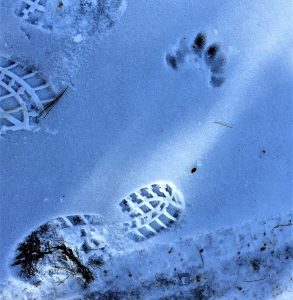
Now, we have foxes in Maine, I’ve seen them. And, coyotes, unseen but not unsung. I know the tracks from both. And in Maine, we have other substantial mammals who prefer meat for dinner. So, when I came across a fresh track on our access road that was almost half the length of my size-12 Bean boot, I was curious. I like to know my neighbors, especially the larger ones.
The track didn’t match any image provided by Google. So, armed with a loaded iPhone, I queried locals at Grover’s Hardware, and Dan’s Auto, and a Sawyer Island dinner party. I asked mostly Mainers, and I received non-definitive suggestions ranging from bear to bobcat. One opinion from a life-long son of the Pine Tree State even suggested catamount, very controversial.
So, for the sake of neighborliness, and by harnessing the boundless wisdom of the internet, I open the discussion to all reading this blog. You can reach me via my contact page for your solicited wildlife analysis. Here’s thanking you in advance. – SJH
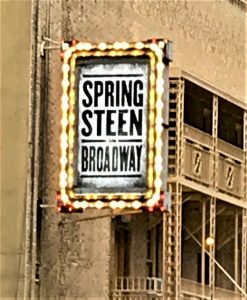 New York City is a magical place for bewitch-able people. I’m not one of them. My wife is, however, and the lure of the Great White Way, the Rockefeller Center Christmas tree, shopping, and knifing through its impenetrable social medium is her forte. It makes her happy. So, she was elated when she got tickets to see Springsteen on Broadway; she had bragging rights for a month. I too was excited within the confines of my dread of crowds, of New York crowds, and my seasonal mood constraints. These constraints start on my birthday in early November, build slowly to fill the void of waning sunlight, then amplify within the confines of indoors spaces, and are in full career by the winter solstice. As I pick through old family photos and write my Christmas cards, I become reflective, introspective and socially inert. Thus, New York City in December can be a challenge, but my wife’s happiness is overriding.
New York City is a magical place for bewitch-able people. I’m not one of them. My wife is, however, and the lure of the Great White Way, the Rockefeller Center Christmas tree, shopping, and knifing through its impenetrable social medium is her forte. It makes her happy. So, she was elated when she got tickets to see Springsteen on Broadway; she had bragging rights for a month. I too was excited within the confines of my dread of crowds, of New York crowds, and my seasonal mood constraints. These constraints start on my birthday in early November, build slowly to fill the void of waning sunlight, then amplify within the confines of indoors spaces, and are in full career by the winter solstice. As I pick through old family photos and write my Christmas cards, I become reflective, introspective and socially inert. Thus, New York City in December can be a challenge, but my wife’s happiness is overriding.
Anyway, it was a good trip. Yes, I still think of New York City as a massive rats-in-a-box psychology lab 101 experiment gone wrong, but the good outweighed the bad. Amid what ethologist, John B. Calhoun, called a “behavioral sink” I found enjoyment.
Springsteen was great. And, I mean that in a wow-he’s-a-world-class-performer-with-musical-and-poetic-chops-that-we, as-a-culture, should-all-be-proud-of kind of way. His two-hour musical narrative held my interest, made me rock in my seat, and made me plumb the depth of my moral and philosophical underpinnings. Death, sex, and rock-and-roll are the new catch-phrase for aging boomers. His lessons, from my mental notes, were: We are all flawed, we run away only to come home, and we all die but don’t give up hope.
The next morning, with Bruce still in our heads, we taxied to the American Museum of Natural History and saw Dark Universe at the Hayden Planetarium. There, the lesson we gleaned from the 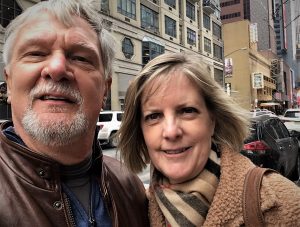 imminently listenable Dr. Neil deGrasse Tyson was that we, the Earth and the human race, are small, very, very small. Not unimportant, but very, very small. And, the corollary to this is that the universe is big, really, really big.
imminently listenable Dr. Neil deGrasse Tyson was that we, the Earth and the human race, are small, very, very small. Not unimportant, but very, very small. And, the corollary to this is that the universe is big, really, really big.
I’ll let the reader draw any master conclusion from these two big-stage events. But wait, there’s more. New York wasn’t finished filling our heads with contemplatable goodies.
On Amtrak 71 back to D.C. the venerable New York Times tells me that “In the $600 billion annual Defense Department budgets, the $22 million spent on the Advanced Aerospace Threat Identification Program was almost impossible to find.” The article, well worth a read, is about funding a military UFO identification program. A freshly released Pentagon video of two U.S. fighter jocks tracking an unidentified object was embedded in the article. So, questions multiply. Are we alone in the universe? Can we be found if we aren’t? Do we want to be found, really? What are the protocols if we are found or, for that matter, what should we do if we find someone else?
Back home in Alexandria after a decent night’s sleep, I take my first cup of coffee to the study and my well-read wife who stays up later than I do has left me an annotated article. Luckily, New York once again comes to rescue my curiosity and propel my inquisitiveness. The New York Times Magazine of December 10, 2017, tells me the answer to the “are we alone” question according to 2,903 of their readers. To the question “Do you believe aliens exist?” 44 percent said no, 31 percent said I don’t know, and 25 percent said yes.
I vote for yes and not merely because I’ve been reading Liu Cixin’s Remembrance of Earth’s Past trilogy, a hard-science, science fiction tome. But I confess that I am impressionable and susceptible to the loquacious Dr. Neil deGrasse Tyson and Liu Cixin, a notable engineer, consultant to the China Aerospace Corporation, and the winner of nine Galaxy Awards, the Chinese Hugo Award. So, here’s the kicker on aliens, Liu Cixin believes that the iron rules of cosmic sociology lead to the conclusion that, should we identify another acculturated, inhabited planet, “Each civilization is like a hunter with a gun in a dark forest: When I see another hunter, I have no choice but to shoot him dead.”
Something to look forward to, I suppose. Meanwhile, I’m listening to Bruce who has musically resolved Mr. Liu’s Three Body Problem–the first volume of his trilogy–with his rhythm guitar and three-chords in Human Touch.
Merry Christmas and Happy Holidays. –SJH
Please know 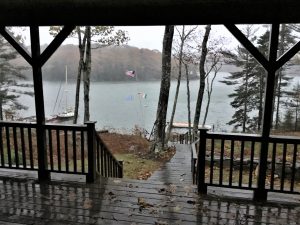 that this is a true account of events as confirmed by a representative of Grover’s Hardware in Boothbay Harbor. The prominent characters in this abridged tale are Maine and Mainers. Some would say that’s redundant but humor the notion just for the moment.
that this is a true account of events as confirmed by a representative of Grover’s Hardware in Boothbay Harbor. The prominent characters in this abridged tale are Maine and Mainers. Some would say that’s redundant but humor the notion just for the moment.
Change is challenging especially when community consensus is a prerequisite. The weather was beautiful on March 9, 2016. The high temperature had reached into the 50s, the wind was seven knots out of the southeast, and the skies had been clear for most of the day. But, by 7:00 p.m. darkness was upon Boothbay, and a pall of skepticism advanced with the sun’s retreat. Attendance at the Boothbay Board of Selectmen meeting promised to be high, so the assembly moved from the town hall to the YMCA. True to expectations, a substantial proportion of the town’s 3,000 citizens showed up. The big draw was the vote on whether or not to vote on the proposed roundabout. Let me explain.
Mainers like to vote. They vote on everything. And that’s probably a good thing except in Wiscasset, but that’s another story involving stubbornness, lobster rolls, and traffic flow. Back to Boothbay, after robust and bounteous citizen dialogue, the selectmen voted 3-0 to allow the roundabout question to appear on the November ballot alongside the question of who would be President of the United States.
On November 8, 2016, the roundabout measure passed 1,121 to 968 and surveying and construction began almost immediately. The busy summer and early fall were tested by construction as crews labored to unravel an indiscernible tangle of stop signs and county roads intersecting in a Bermuda Triangle North, of sorts. The ancient conglomeration was a “failed intersection” characterized by no less than the Maine Department of Transportation. The plan was to superimposed a small but functional traffic circle on the mess. Now with the work mostly complete in early November 2017 and the roundabout in service, all that is left is for local motorists–because only locals are left in Boothbay this time of year–to learn how to use it.
There’s a significant backstory that I’ll summarize as follows. The story involves a flavored vodka magnate, a person from away (PFA)–that is, forty-eight miles away–who many locals believe is trying to disrupt the historic Boothbay social and economic trajectory. Yes, the magnate built a 30 million dollar mansion, luxified a sleepy old golf course and a tired hotel on the harbor, and has projected that he knows what’s best for the region. The magnate, Mr. Coulombe, was a principal supporter and financier and beneficiary of the roundabout. Hence, the roundabout was a much-discussed emotional issue.
With any change, there’s a learning curve. Since Mainers don’t travel far from home, perhaps for fear of being pegged as “from away,” many have never used a roundabout. Suffice it to say from inception to implementation; the roundabout has been on everyone’s minds and tongues. At least it was until the Sunday before Halloween. That’s when the wind began to howl, and the rain started to sting.
The storm started around 10:00 p.m. and by 5:00 a.m., more than half a million Mainers had lost power. Virtually everyone in Boothbay lost electricity, and some were out for seven days. Barters Island, our home away from home was out for four and a half days. Thank goodness it wasn’t freezing, and the temperatures stayed between 40-60 degrees.
Now we come to the point of the story. When the people of Boothbay lost power, they stopped talking about the roundabout. All the local buzz changed to talk about the storm and trees and generators and power lines. So, if you want people to stop complaining about something, cause a bigger problem. Again, this social phenomenon has been confirmed by a credible representative of Grover’s Hardware so you can take it to the bank or if you prefer, the hardware. –SJH
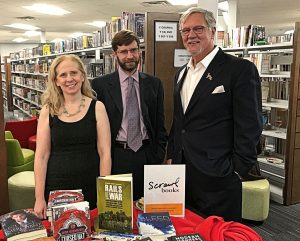 The Fairfax Library Foundation supports twenty-three branches of the Fairfax County Public Library which in turn serve the 1.1 million citizens of its Northern Virginia jurisdiction.
The Fairfax Library Foundation supports twenty-three branches of the Fairfax County Public Library which in turn serve the 1.1 million citizens of its Northern Virginia jurisdiction.
Both the Foundation and the Library are wonderful organizations. I was honored that Rails of War could play a small part in the Foundation’s Jubilee annual fundraiser. I am also proud that my lovely and talented wife, Kathleen, serves as the Foundation’s treasurer pro bono. So, yes, who you know matters.
The Jubilee was a typical evening of schmoozing, perusing, and trying to look dignified while you casually wolf passed-hors-d’oeuvre or trundle through the food line. My wife mingles savvier and moves more elegantly than do I so I always follow her lead. If you were writing a short story about me at these events, the plot would be “fish out of water.” The Jubilee featured a silent auction, an area where you could take photos with cardboard celebrities and, thankfully, brief speeches by county politicos and acknowledgments from the podium for volunteers, and staff, and work well-done. By the way, they didn’t have a cardboard cutout of Edward Norton’s Death to Smoochy character, Sheldon Mopes, so I wasn’t interested in a picture. Kathy went with Benedict Cumberbatch.
But, before I go on, I’d like to explore the anthropological possibility that the human form has yet to evolve to take advantage of the resources offered at a Jubilee. Here’s the problem. You get a drink and begin moseying into the crowd. Then, the first passed-hors-d’oeuvres come within reach. That’s when you realize that three arms may be an evolutionary advantage. The hors d’oeuvre you’ve set your sights on is usually separate from the prerequisite paper napkin, and your drink is in your dominant hand. So, how do you arrange the morsel and napkin then make off with your bounty? The answer is, for me, awkwardly. Or, ham-fistedly. Or, at last night’s Jubilee, prosciutto-fistedly. Then, with your reward collected, what if someone wants to shake hands? Or, what if you need to clap? Luckily, this may only be a niche defect, not as looming as say dodging cheetahs on the savanna.
Back to my point, the Fairfax Library Foundation invited me to be a part of their local author presentation, and I was honored. Rails of War was offered for purchase at the Jubilee by Scrawl Books an independent bookseller who supports local literacy efforts and freedom of speech. Ms. Rachel Wood, a former librarian, is the owner. So, thank you Ms. Wood, Scrawl Books, and the Foundation for all of your work supporting the Library and our vital literary community.
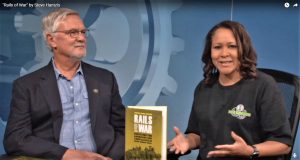 I’m proud to share this interview with my former employer the International Association of Machinist and Aerospace Workers, a modern and sophisticated labor organization. The ‘Machinists Union’ was founded in 1888 by nineteen determined railroaders in a grimy locomotive drop pit in Atlanta, Georgia. Today, with 600,000 members in diverse industries and government agencies, the IAMAW remains on the cutting edge of communications fighting the good fight for working people in the U.S. and Canada. In Solidarity,
I’m proud to share this interview with my former employer the International Association of Machinist and Aerospace Workers, a modern and sophisticated labor organization. The ‘Machinists Union’ was founded in 1888 by nineteen determined railroaders in a grimy locomotive drop pit in Atlanta, Georgia. Today, with 600,000 members in diverse industries and government agencies, the IAMAW remains on the cutting edge of communications fighting the good fight for working people in the U.S. and Canada. In Solidarity,
-SJH


